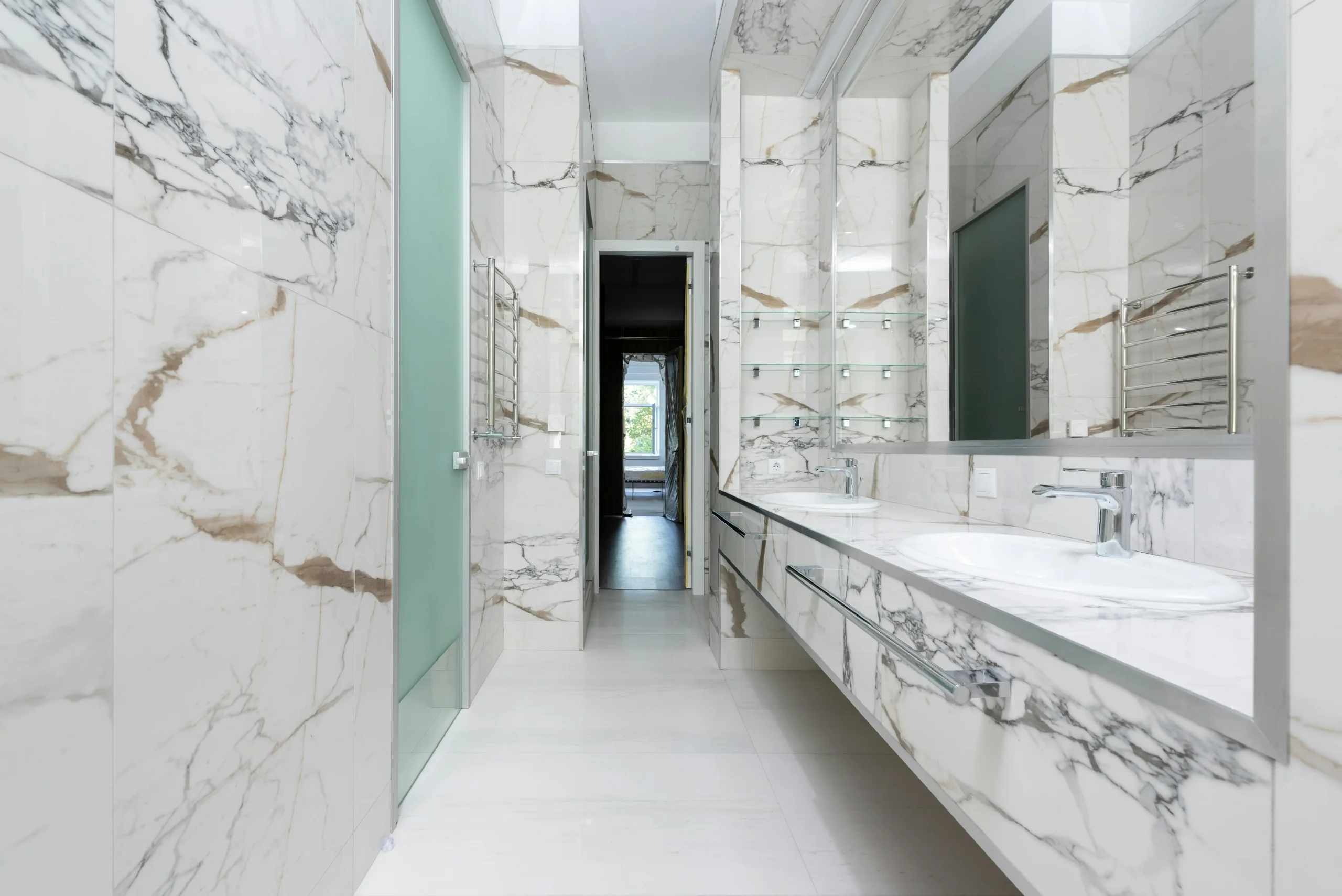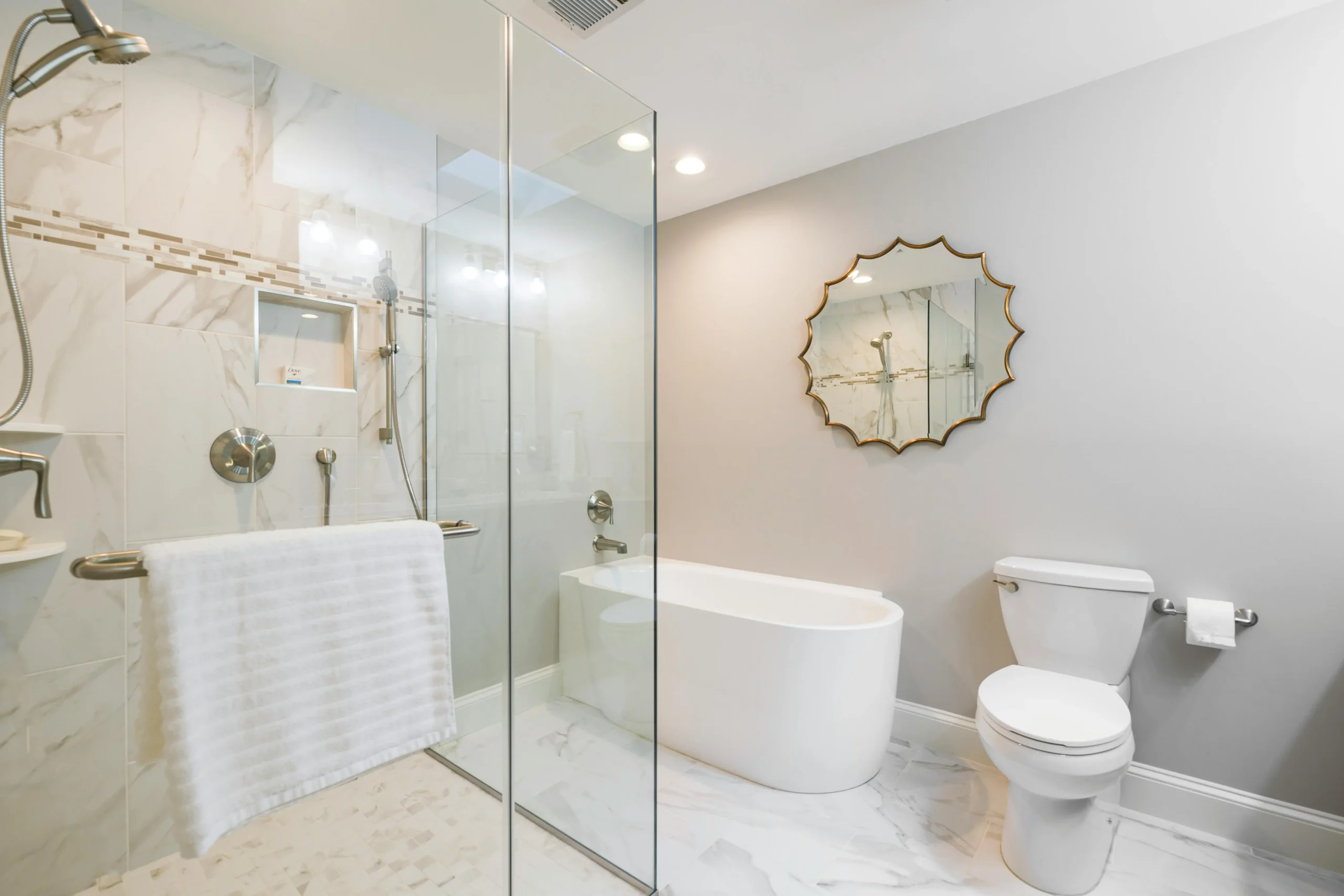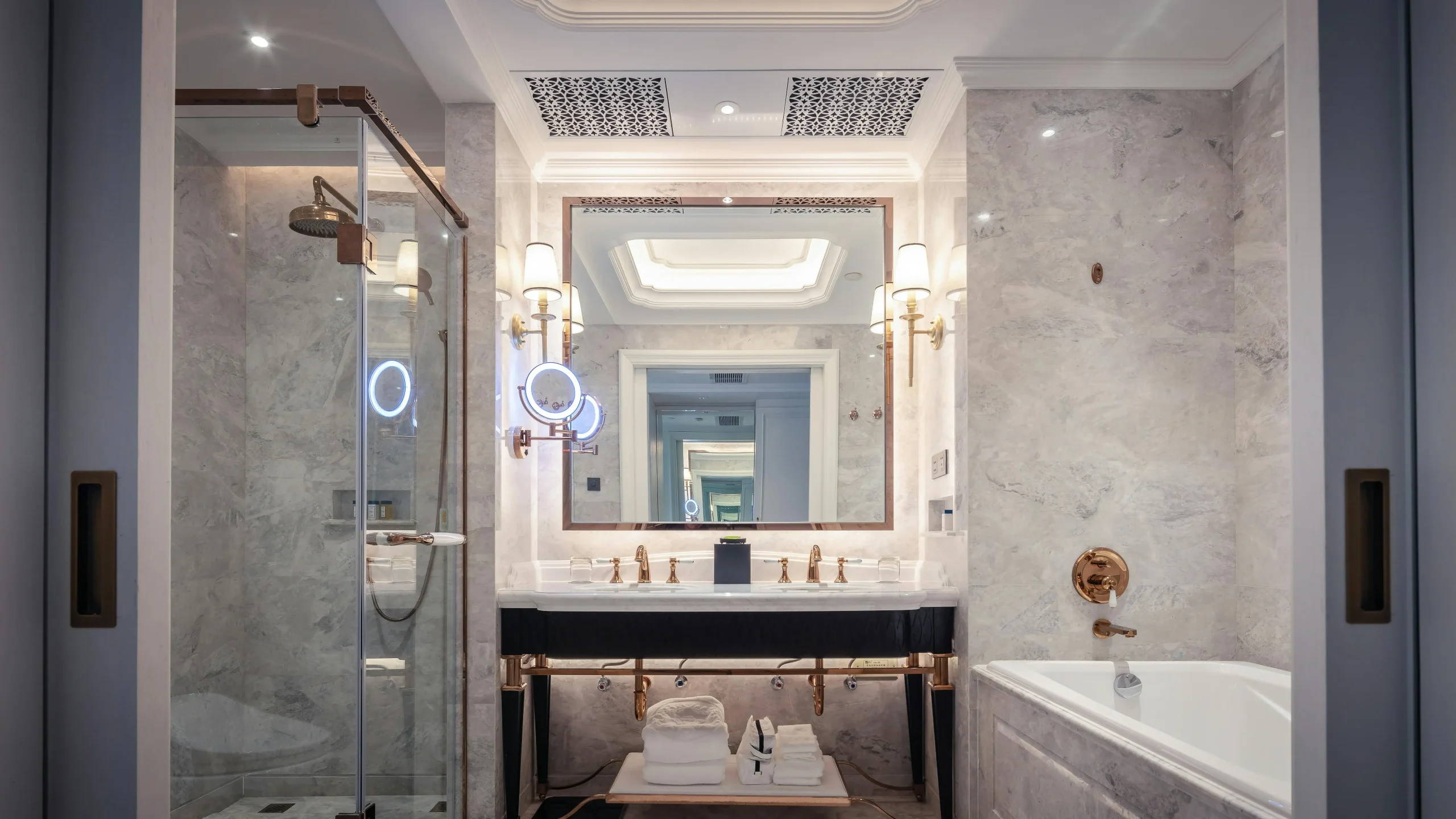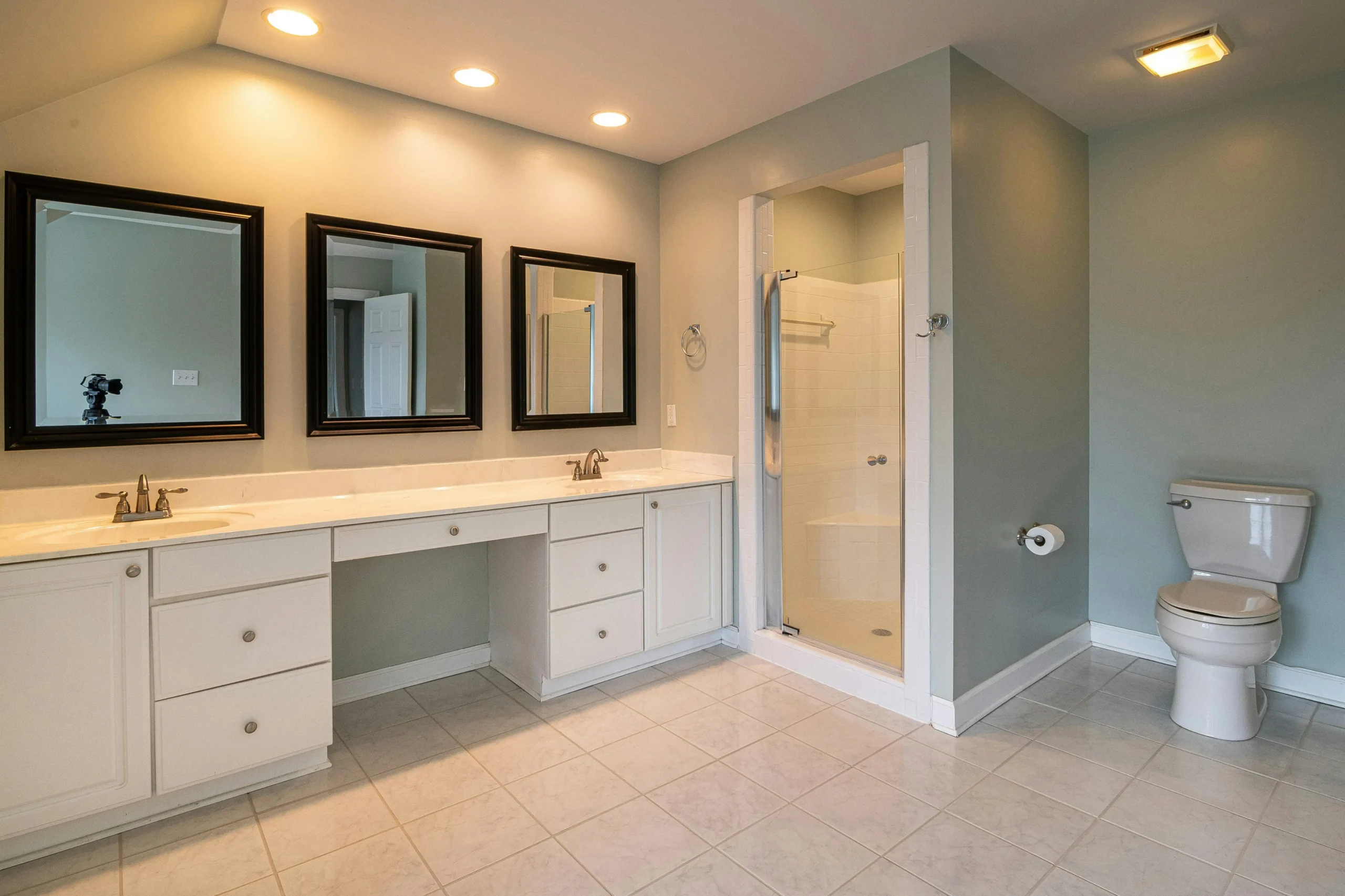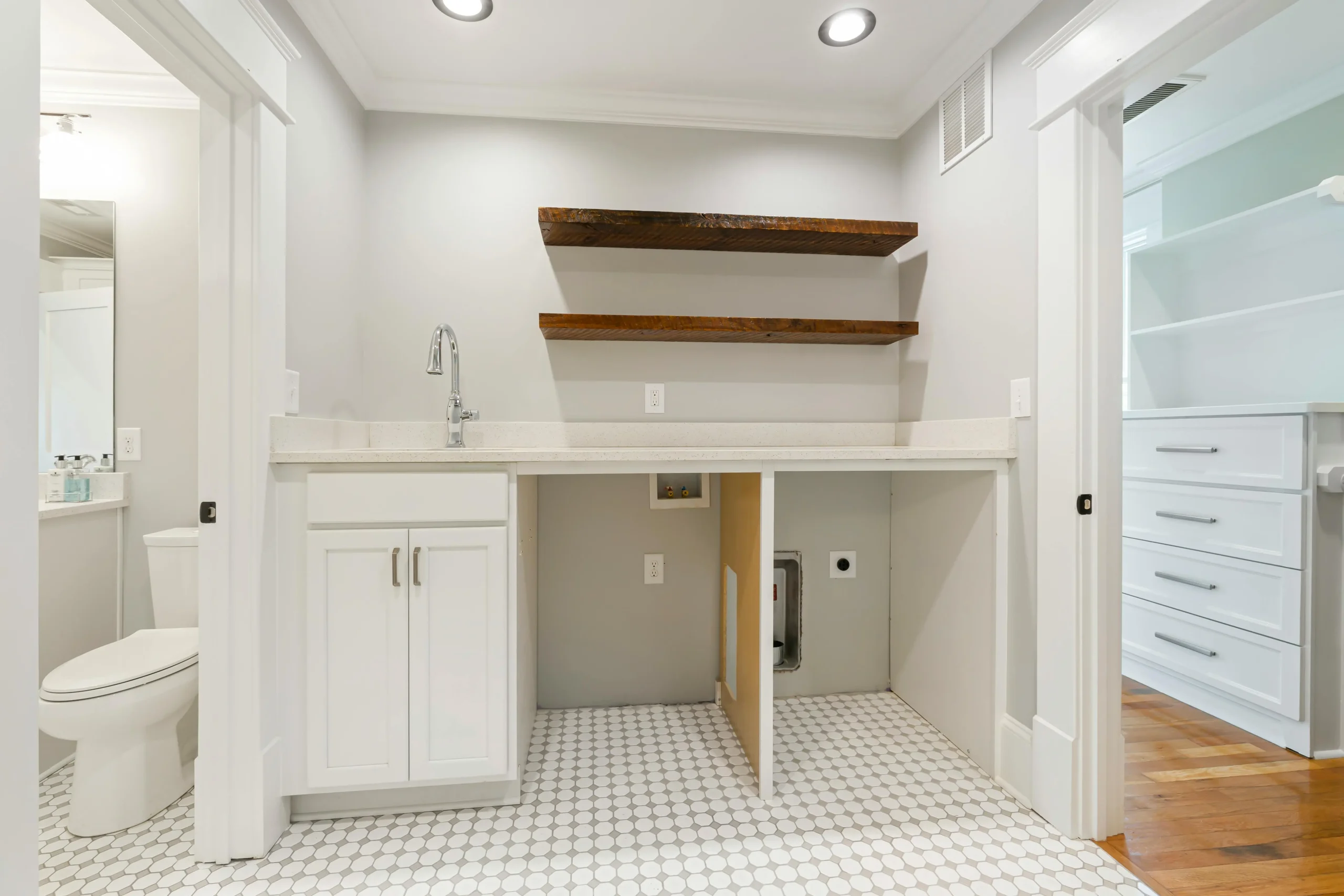Breaking Down Kansas City Kitchen Remodel Costs
Understanding the full scope of kitchen remodel costs in Kansas City starts with a detailed breakdown of what goes into the project. Most kitchen remodels include a combination of design, demolition, materials, labor, installation, and post-construction finishing. Depending on the size of your kitchen and your desired updates, costs can range widely—from around $15,000 for a modest refresh to $70,000+ for a high-end transformation. The biggest contributors are typically cabinetry, countertops, appliances, and labor. Many Kansas City homes, especially in historic neighborhoods, may also require plumbing or electrical updates to meet current codes. This can add to both the complexity and the cost. Additional items, such as permits, design consultations, and temporary living accommodations during construction, may also factor into your total budget. By breaking down each component of the renovation and prioritizing your must-haves, you can plan more effectively and avoid hidden surprises. An accurate cost breakdown not only improves budgeting—it also ensures your final result meets expectations.
Factors Influencing Remodeling Costs
Several key factors influence the total cost of a kitchen remodel in Kansas City. One of the most impactful is the scope of the remodel—are you sticking to the existing layout or moving walls and utilities? Layout changes often require new plumbing and electrical work, which can quickly increase the budget. Material selection is another major contributor. High-end finishes, designer tile, custom cabinetry, and luxury appliances come with higher price tags. Labor availability and local rates in Kansas City also affect the bottom line—more experienced contractors may charge more, but typically offer better craftsmanship and reliability. The age and condition of your home can also raise costs, especially if outdated systems need replacing or unforeseen structural issues arise during demolition. Permit fees, supply chain delays, and project timelines can further impact pricing. Understanding all these factors ahead of time gives you a clearer picture of where to allocate your budget and helps you avoid overspending while still achieving your remodeling goals.
Material Costs for Major Kitchen Renovations
Material choices play a huge role in determining the cost of a major kitchen renovation in Kansas City. Cabinets usually take up the biggest share of the materials budget—anywhere from 25% to 40%. Stock cabinets are the most affordable option, while semi-custom and fully custom cabinets provide more flexibility and aesthetics at a higher price point. Countertops come next, with materials like granite and quartz being the most popular in mid-to-high-end homes. Budget-friendly options like laminate or butcher block can offer great looks at a lower cost. Flooring also impacts the price, whether you opt for tile, hardwood, vinyl, or engineered wood. Backsplash tile, hardware, faucets, lighting fixtures, and paint are smaller line items that add up quickly. Appliances, depending on brand and features, can range from $3,000 to $20,000+. With so many variables, it’s important to work with a contractor or designer who can guide you through selections that align with both your vision and your budget. Quality materials don’t have to break the bank—they just have to be chosen wisely.
Kansas City Labor Costs for Kitchen Remodels
Labor costs in Kansas City are a significant part of your kitchen remodel investment—typically accounting for 35% to 50% of the total project cost. The exact cost depends on the project’s complexity and the experience level of the professionals you hire. Skilled trades such as electricians, plumbers, and carpenters may charge between $60 and $150 per hour. Larger remodels that involve rerouting plumbing, moving electrical panels, or opening up walls require more time and coordination among specialists, which increases labor costs. If you’re hiring a general contractor, their fee typically includes subcontractor management, scheduling, and overall project supervision. Some Kansas City homeowners may consider DIY elements to reduce labor costs, but this can be risky without proper experience—mistakes could lead to costly rework or even safety hazards. Paying for quality labor ensures that the job is done correctly, meets local building codes, and stays on schedule. Hiring reputable professionals with positive reviews and references will give you peace of mind and a more polished final result.
Kitchen Remodel Cost Guide for Beginners
If you’re new to remodeling, understanding kitchen costs can be daunting—but starting with a cost guide can simplify the process. In Kansas City, beginner-level kitchen remodels often start around $15,000 to $25,000, typically covering cosmetic changes like painting cabinets, replacing hardware, updating lighting, and swapping out outdated appliances. A midrange remodel usually falls between $30,000 and $50,000, offering semi-custom cabinets, quartz or granite countertops, newer appliances, and upgraded flooring. An upscale kitchen remodel can run upwards of $70,000, featuring high-end appliances, custom cabinetry, natural stone surfaces, and layout reconfiguration. First-time remodelers should also factor in permits, consultation fees, and a contingency fund of 10–15% for unexpected expenses. It’s essential to define your goals early—whether it’s resale, entertaining, or daily functionality—and let those drive your budgeting priorities. Working with a local Kansas City contractor or designer can help you understand your options and keep your remodel on time and within your budget.
Budgeting Tips for Kitchen Remodels
Creating a realistic budget is key to a successful kitchen remodel, and careful planning can help you save money without sacrificing style or function. Start by determining your total budget and dividing it into categories: cabinets, countertops, appliances, flooring, plumbing, lighting, labor, and design fees. Experts suggest allocating 10% to 15% for contingencies, as unexpected issues often arise during demolition—especially in older Kansas City homes. Prioritize your must-haves and be flexible with nice-to-haves. For instance, splurging on quartz countertops might mean saving on lighting or hardware. Research local suppliers and contractors for seasonal promotions or package deals. Buying appliances during holiday sales or directly from showrooms can reduce costs. Reusing some elements—like cabinet boxes, if they’re in good condition—can also cut expenses. Lastly, get multiple estimates and ensure all quotes are itemized, so you know exactly what you’re paying for. Budgeting is not about cutting corners; it’s about spending wisely and maximizing every dollar for lasting impact.
High-End vs. Budget Kitchen Remodel: Cost Differences
The difference between a high-end and a budget kitchen remodel in Kansas City can be significant—and understanding these differences helps you choose the right level of investment for your home and lifestyle. A budget remodel, usually under $25,000, focuses on surface-level upgrades: painting existing cabinets, updating light fixtures, installing new hardware, and replacing outdated appliances with mid-range models. It enhances appearance and functionality without making major changes to the layout. A high-end remodel, typically $70,000 or more, is a complete transformation. It includes removing walls for an open-concept layout, installing custom cabinetry, luxury countertops, premium appliances, and designer lighting. These remodels may also include smart home features, hidden storage solutions, and custom millwork. High-end kitchens cater to homeowners who want a personalized, luxurious space and plan to stay long-term. Budget remodels are great for improving home value prior to sale or making cosmetic improvements. Your decision should reflect how you use the space and what kind of return you’re expecting—both in terms of resale and everyday enjoyment.
Impact of Kitchen Size on Remodel Cost
The size of your kitchen has a direct impact on your remodeling costs. A small kitchen—typically under 100 square feet—requires fewer cabinets, less countertop material, and less flooring, which helps keep both labor and materials costs lower. However, compact spaces may require more creative design solutions, which can add cost in the form of custom storage or space-saving layouts. A medium-sized kitchen (100–200 square feet) offers more design flexibility and is often the sweet spot for remodeling budgets. Large kitchens, especially those over 200 square feet, naturally cost more due to the sheer quantity of materials and longer installation times. Larger kitchens may also include multiple work zones, islands, built-in seating, or walk-in pantries, which increase complexity and cost. In Kansas City, kitchen size also affects permit needs and the number of trades required. While bigger spaces offer more potential, they also demand a higher level of planning and budget allocation. Designing efficiently for the space you have—no matter the size—is the best way to balance cost and comfort.
Average Price of Kitchen Remodels by Region
Remodeling costs vary widely depending on your location, and Kansas City typically falls around the national average or slightly below, making it an attractive place for homeowners looking to maximize value. According to recent data, the average midrange kitchen remodel in Kansas City costs between $30,000 and $50,000, while high-end remodels can range from $60,000 to $100,000+, depending on materials and scope. In contrast, similar remodels in cities like San Francisco or New York might cost 30–50% more, primarily due to higher labor and permit fees. Kansas City homeowners benefit from access to a variety of skilled contractors, competitive labor rates, and a healthy mix of urban and suburban housing styles. The region also offers access to reputable local suppliers and showrooms, which can help reduce shipping and logistics costs. Understanding how your region compares allows you to better plan, allocate funds appropriately, and avoid overpaying for services or materials that are available locally at better rates.
FAQs: Understanding Major Kitchen Value
Homeowners in Kansas City often have several questions when considering a kitchen remodel, especially about what adds the most value. What features are worth the investment? Key elements include upgraded cabinetry, stone countertops, quality flooring, and modern appliances. Do I need permits? Yes—any structural, plumbing, or electrical changes typically require permits in Kansas City. How long will it take? A full kitchen remodel usually takes 6 to 12 weeks, depending on the project’s scope and complexity. Is a kitchen remodel disruptive? Yes, but with a good plan—including a temporary kitchen setup—it can be manageable. What’s the resale benefit? A professionally remodeled kitchen often returns 60% to 75% of its cost at resale. Other questions include whether you should hire a designer, if financing is available, and how to choose the right contractor. Addressing these FAQs up front helps you set expectations, make informed decisions, and start your project with confidence and clarity.
What Can I Expect for Return on Investment?
A kitchen remodel offers not just aesthetic and functional benefits, but also a measurable return on investment (ROI). In Kansas City, a well-executed midrange kitchen remodel typically yields an ROI of 60% to 75%, meaning you could recover $18,000 to $37,500 on a $50,000 remodel when selling your home. If you plan to stay long-term, the daily value you gain from a more comfortable, efficient kitchen may be just as important as resale value. Upgrades like energy-efficient appliances, quality cabinetry, and smart storage solutions add long-term savings and convenience. Keep in mind that ROI varies depending on the neighborhood, the market at time of sale, and the quality of the renovation. Over-improving for your area can reduce ROI, while a thoughtfully planned upgrade aligned with comparable homes boosts both appeal and value. Ultimately, the best ROI comes from smart choices—investing where it counts, staying on budget, and working with trusted Kansas City professionals who understand the local market.
Frequently Asked Questions
Is $30,000 enough for a kitchen remodel?
Yes, $30,000 is generally enough for a complete mid-range kitchen remodel that includes both functional improvements and aesthetic upgrades. With this budget, homeowners can install semi-custom cabinetry, quartz or granite countertops, mid-grade stainless steel appliances, and new flooring such as ceramic tile or luxury vinyl plank. It also covers essential lighting upgrades, sink and faucet replacements, and a new backsplash. By keeping the existing layout intact, labor and plumbing costs can be minimized, allowing for more money to be spent on finishes and features. Professional labor, demolition, and permits are typically manageable within this price range. Smart budgeting also leaves room for quality hardware, a fresh coat of paint, and organizational upgrades like pull-out shelving. The key is selecting materials that balance style, durability, and cost-effectiveness. $30,000 provides a strong foundation for remodeling an average-sized kitchen without entering luxury territory. Partnering with an experienced contractor ensures the project is properly scoped and completed on time and within budget.
What is a good budget for a kitchen remodel?
A good kitchen remodel budget typically ranges between $25,000 and $60,000, depending on the kitchen’s size, material quality, and design complexity. This range supports quality upgrades without overcapitalizing, especially in homes valued between $250,000 and $600,000. A budget near $25,000 allows for cabinet refacing, upgraded countertops, and newer appliances, while still maintaining a clean, functional layout. Between $35,000 and $50,000, homeowners can afford semi-custom cabinetry, high-efficiency appliances, tile backsplashes, modern lighting, and flooring. Budgets above $50,000 often include layout changes, custom cabinetry, smart appliances, and premium finishes like natural stone and designer hardware. Experts recommend allocating 10%–15% of the home’s value toward a kitchen remodel to maintain or increase resale value. Labor typically accounts for 30%–40% of the total budget, so local contractor rates can influence the final cost. Homeowners should also reserve 10%–15% of the budget for contingency spending on unexpected repairs or changes. A good remodel budget combines value, aesthetics, and long-term usability.
What is the average cost of a brand new kitchen?
The average cost of a brand new kitchen in the U.S. ranges from $25,000 to $60,000, with variation based on square footage, layout, and quality of materials. For smaller kitchens or budget-friendly designs, a basic remodel may start at $15,000 to $20,000. Mid-range remodels, which often include new cabinetry, countertops, appliances, and flooring, average between $30,000 and $45,000. Larger kitchens with high-end finishes, custom cabinetry, and luxury appliances can easily exceed $60,000. The cost includes demolition, labor, electrical and plumbing updates, cabinetry, countertops, flooring, backsplash, lighting, and appliances. Labor alone can represent 30%–40% of the total cost, especially in markets with higher rates. Cabinetry is usually the largest single expense, followed by countertops and appliances. Homeowners should also consider permits and disposal costs when budgeting. A new kitchen can dramatically increase property value and improve daily functionality, making it one of the most impactful home investments.
What is the most expensive part of a kitchen remodel?
Cabinetry is typically the most expensive part of a kitchen remodel, accounting for 25% to 35% of the total project budget. Custom cabinets with specialized storage features, high-end materials, and intricate trim details can significantly raise the overall cost. Even semi-custom or stock cabinets represent a large portion of the investment due to materials, installation labor, and hardware. Following cabinetry, labor costs are the next biggest expense, especially when extensive electrical, plumbing, or structural work is involved. Countertops—particularly quartz, granite, or marble—also carry a high cost depending on material and square footage. Appliances, lighting, and flooring contribute to overall expenses, but tend to be more flexible in terms of pricing. Choosing cost-effective options like ready-to-assemble cabinets or laminate counters can reduce the budget. Understanding the hierarchy of kitchen costs helps homeowners plan their remodel strategically, allowing for smart upgrades while maintaining financial control. Investing wisely in cabinetry ensures long-term durability and visual appeal.

